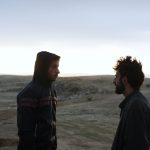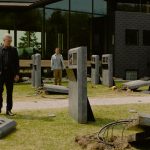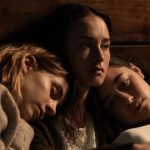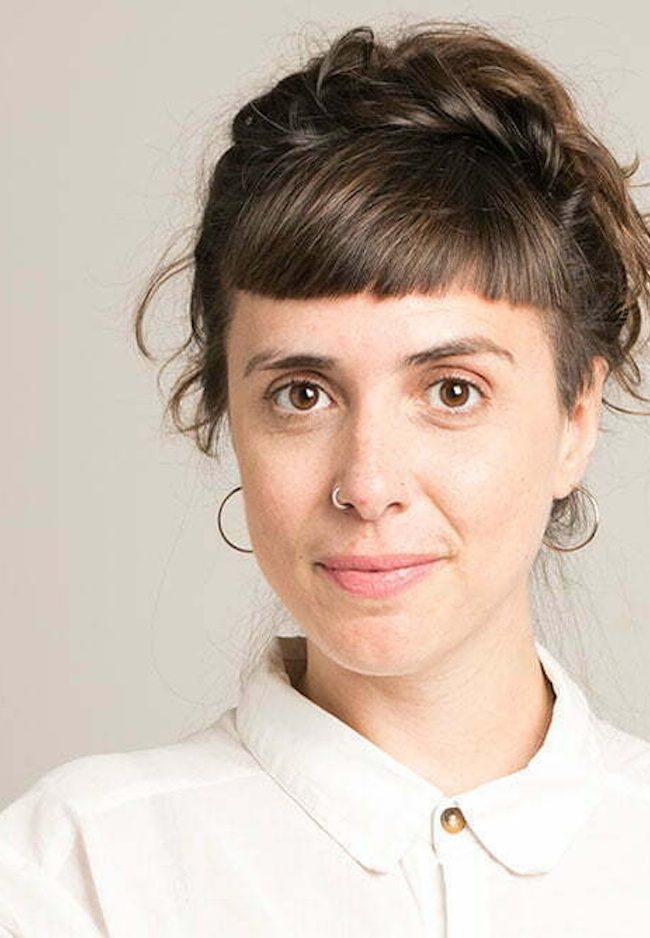A Conversation with J.D Fernández Molero (PUNKU)
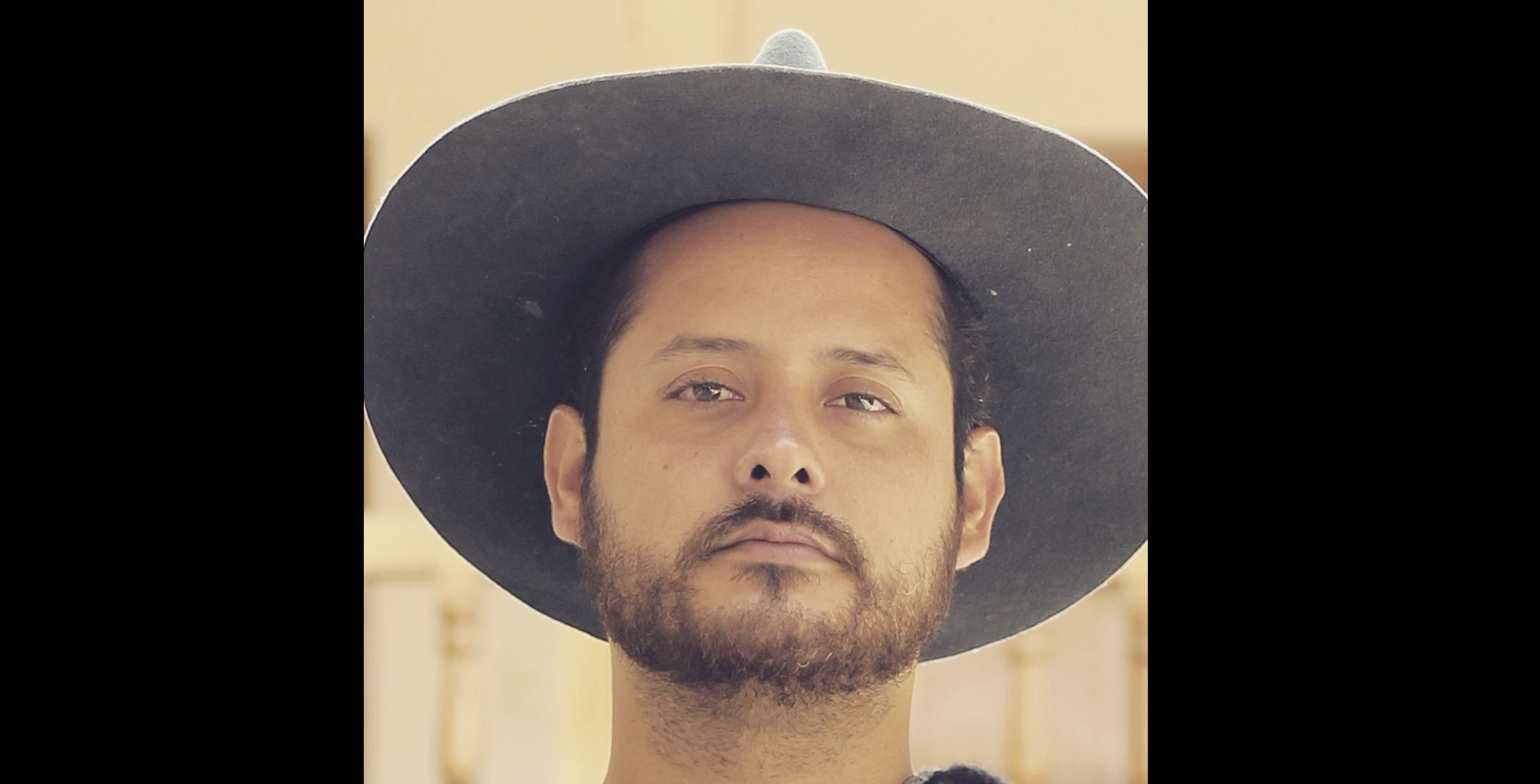
When words fail, cinema is the purest form of expression, believes experimental filmmaker J.D Fernández Molero. Cinema is the closest thing to dreams, in its ability to conjure existence and twist reality. Cinema is a punku, meaning for “gateway” in Quechua, and the title of Molero’s sophomore feature film.
Punku is a labyrinth in every sense of the word, as we watch our two main characters – Ivan, a young boy who vanished after a traumatic accident, presumed dead to his family, and Meshia, an Indigenous teenager who becomes his guide and caretaker– wander through the haze of dreams, memories, and the different layers of realities. As we traverse through Peruvian jungles, our own sense of what is real and what is not dissolved into a confounding yet mesmerizing inability to decipher what we see, hear, and understand.
It’s fever dream – or, more accurately, nightmare – that places themes of trauma, belonging, and self expression (or the lack thereof) in a realm of surrealism, drawing upon stories told to Molero as a child, not to mention his own traumas of childhood. In a conversation with director Juan Daniel Molero, we discovered the ways in which cinema acts as a punku of his own life.
Hammer to Nail: This film is so hypnotic and elusive, I would love to hear about where the idea came from?
J.D Fernández Molero: There were three key events in my childhood that made this film possible. One was the sleep paralysis. Everytime I went to sleep, I was afraid of sleeping because I knew this thing was coming that would make me paralyzed and wake me up in the middle of the night and see things like shadows or light figures of humans – you don’t really know what is real. It’s not being awake, it’s not being asleep, it’s a third state of the mind. I think that’s Puku in some ways.
I also have to add to that bedtime stories there weren’t really stories, but were more like anecdotes from family members or people that took care of me, that come from Quillabamba. The other reason was that I had difficulties learning to talk. My parents went to analyze me to see if I had some kind of problem and they just said that my ideas were developing at a higher rate than my verbal abilities. In those formative years, to have those feelings of not being able to express yourself, that’s really painful. Not being understood is one of the loneliest things in the world. If you want to be understood, sometimes you have to simplify and sacrifice the honestly of what you want to say, and I was like ‘How can I be understood without sacrificing?’ and I think cinema is really powerful for that.
HtN: It sounds like the main character, Ivan, who refuses to speak after a traumatic event takes his eyesight, shares experiences with your own childhood. If you created the character of Ivan around your own childhood, how were the other characters crafted?
JDFM: I’m not a filmmaker or a writer that defines my characters in my mind, analyzing and constructing their psychological profiles. I draw silhouettes. I’m more focused on the location, then I start to absorb this information of what story to do here. The location defines the narrative and the narrative defines the character and the actor defines the character also
The castings were these long interviews with kids in high schools, like 500 interviews. I was asking them about their families, their fears, their dreams. That’s what you see at the beginning. Maybe their testimony can help the script, and it has. A couple of people told me their nightmares, like the tuk tuk that stalks the character Meshia came from one of these testimonies.
HtN: Can you expand upon the influence of the land you were living and filming in?
JDFM: Quillabamba [where the film takes place and was shot] means “The Valley of the Moon” so there’s a special connection with the moon, how it comes out of the mountains, so the Machiguenga cultures, the Amazon cultures are very connected to the moon. My life has been saved by a full moon. My and my crew were on a boat at night in these rapids in the Amazon and we didn’t have any flashlights, no internet. We just hoped there was a full moon, so we were just waiting for the moon to come up, and it guided the way for us. Weird things happen in the river. It’s this beautiful paradise, but at the same time, kind of a hell. It’s so noisy and so hidden that it’s the right place for someone to do bad things.
I have mixed blood, predominantly Western, but it’s people that have been there [in Peru] for many, many, many generations. So these many, many generations have been sculpted by the space. The space, at the end, is the one who decides who belongs there, not politics or anything else. Sometimes in Latin American cinema, or Peruvian at least, we not only see location just as a landscape, but we see local people as landscape.
HtN: To speak about your family, how did they influence the creation of this film?
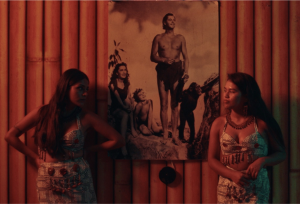
A still from PUNKU
JDFM: One part of the reason I did Punku was because my dad passed away while I was shooting Videopilia. He was a man from Quillabamba with all these male traditions and I had this void because even though my dad was this hyper-masculine, structured person – his mom died when he was born, so that made him even more masculine because he had no connection with the feminine side – once you take out that presence, what do you fill it with? So the film is a little bit about not having parents.
HtN: Magical realism is a term that gets thrown around when films seep into the mythological, fantastical, or simply irrational – and is often used in the same breath as Latin American cinema. What are your opinions on the “Magical Realism” tag and whether Punku identifies as this?
JDFM: Magical realism has a burden of colonial heritage in how you see Spanish-speaking non-realism. It seems very purist to see magical realism as purely Latin American. It’s a label that limits what it is to be a Latin American. I am influenced by John Carpenter, or abstraction and hardcore experimental cinema, or German expressionism, or Taiwanese cinema. Why limit ourselves? I was talking a lot with Peruvian filmmakers [at the film’s world premiere at Berlinale] and we were like, “Why do we care so much about being understood by other cultures? Do you think French filmmakers are like “Oh no, do you think…” No, because they’re the dominant culture! Peruvians sometimes sacrifice and simplify – we turn into a cartoon of ourselves, our culture – because we’re afraid of not being understood.
Puku screens at the Cartagena International Film Festival, with screenings on April 2nd and 4th
– Kaitlyn Hardy

